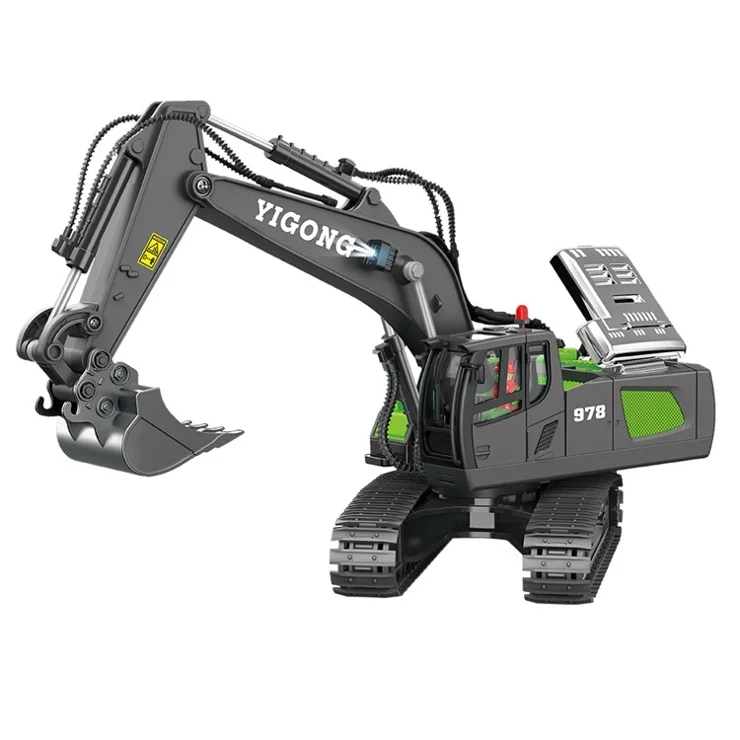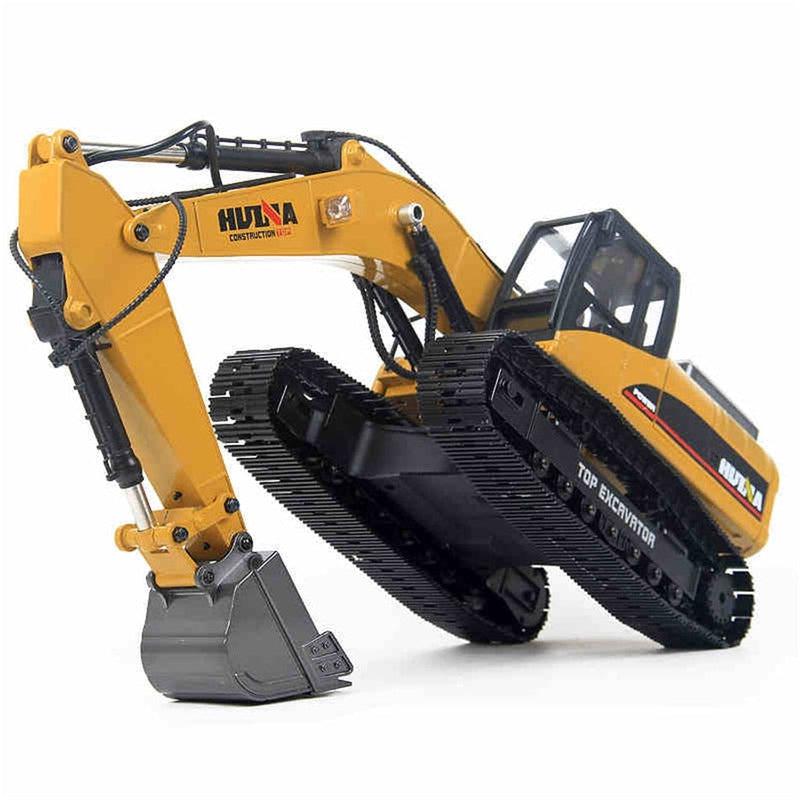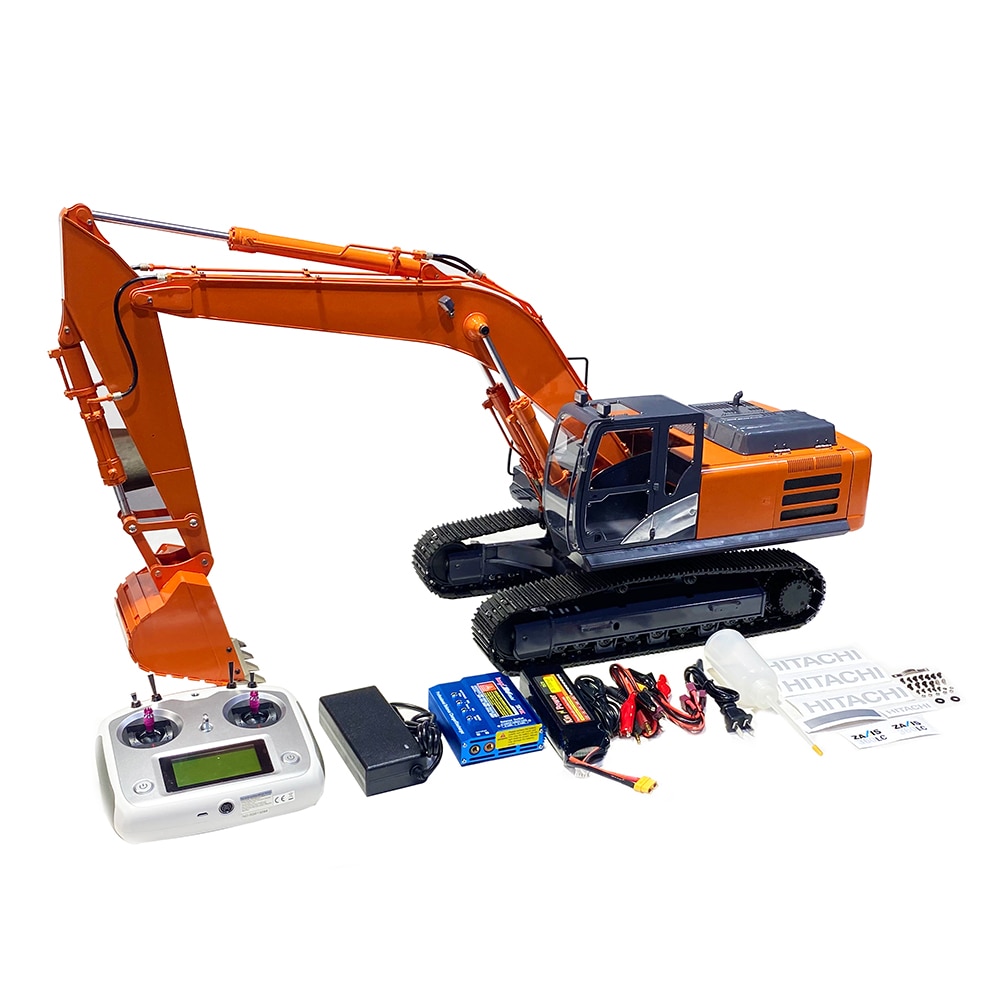Comprehending Just How Excavator Works and Its Impact on Effectiveness
Excavators play a necessary function in construction and mining procedures, counting on a complex interaction of hydraulic and mechanical systems. Their capacity to perform a selection of jobs depends upon both their design and the modern technology incorporated within. Comprehending these components can considerably influence operational performance and efficiency. As advancements proceed to improve the industry, one have to think about how these changes will influence future techniques and performance.
The Fundamentals of Excavator Mechanics

The Function of Hydraulic Equipments in Excavators
At the heart of excavator procedure exists the hydraulic system, which plays a pivotal role in powering the maker's activities and features. This system utilizes pressurized hydraulic fluid to transfer energy, allowing various actions such as moving, excavating, and lifting. By utilizing the principles of hydraulics, excavators can do jobs with impressive precision and force, enhancing overall functional efficiency.The hydraulic system includes vital components, including shutoffs, cylinders, and pumps, which function with each other to manage the circulation and direction of the fluid. When the driver engages the controls, the hydraulic fluid is directed to certain cylinders, equating the operator's commands right into physical motion. This system enables receptive and smooth actions, which are necessary in building and excavation environments. double e volvo rc excavator. The effectiveness of the hydraulic system straight affects the productivity and convenience of the excavator, making it an essential element in modern-day excavation procedures
Key Elements of an Excavator
Recognizing the essential components of an excavator is important for grasping exactly how this powerful machine runs. An excavator contains a number of significant aspects, including the undercarriage, house, boom, arm, and pail. The undercarriage supplies stability and flexibility, frequently including wheels or tracks to browse numerous surfaces. The home includes the engine and hydraulic systems, allowing the operator to manage activity and power the device. The boom expands from your home, making it possible for vertical reach, while the arm attaches to the pail, promoting digging and lifting operations.Additionally, the taxicab houses the operator, furnished with controls for specific maneuvering. Each of these elements plays an important role in the excavator's general functionality, adding to its efficiency and effectiveness on building websites. Understanding these parts assists in maximizing and maintaining excavator performance, making sure jobs are completed securely and effectively.
Accessory Convenience and Its Advantages
Attachment convenience is a necessary facet of excavators, allowing drivers to switch in between different devices customized for specific tasks. This versatility not just enhances job effectiveness yet also contributes to cost-effectiveness by decreasing the need for numerous makers. Comprehending the various kinds of accessories offered can substantially affect the general efficiency and performance of an excavator on task sites.
Kinds of Attachments
While excavators are largely recognized for their digging abilities, their real flexibility depends on the broad array of attachments readily available. These add-ons improve the excavator's capability, permitting it to execute various tasks beyond excavation. Common add-ons consist of containers (for digging and scooping), hydraulic thumbs (for grasping materials), and augers (for drilling openings) Grapples are used for moving and handling particles, while rippers can separate hard surfaces. Various other specialized add-ons, such as plates and plows, enable excavators to adjust to certain work demands. This variety not only enhances the machine's utility across various fields, consisting of landscaping, demolition, and building, however additionally allows operators to customize their tools to fulfill details job needs efficiently.
Increased Task Efficiency
Taking full advantage of task performance is a primary benefit of making use of different excavator attachments. Different add-ons enable an excavator to execute numerous tasks without needing to switch over equipment, saving useful time and labor. Utilizing a hydraulic hammer can damage concrete while a bucket add-on can excavate dirt, making it possible for a seamless process. This flexibility lowers downtime related to tools changes and improves performance on-site. Additionally, specialized accessories enhance accuracy in tasks such as grading or landscape design, causing better results. The capacity to adapt to various task needs not just streamlines operations yet also reduces the requirement for extra machinery, making sure that tasks are finished quickly and successfully. In general, attachment adaptability considerably contributes to enhanced task effectiveness in excavation job.
Cost-Effectiveness and Adaptability
Cost-effectiveness is a substantial benefit of making use of functional excavator add-ons. These add-ons enable a single excavator to carry out multiple jobs, decreasing the need for additional machinery and labor - double e volvo rc excavator. By changing between buckets, hammers, and grapples, operators can tackle various projects, from digging to demolition, thereby maximizing tools application. This versatility not just lowers functional prices however likewise reduces downtime associated with changing devices. Furthermore, the capacity to personalize excavators with specialized attachments boosts efficiency, as they can efficiently take care of diverse tasks according to job demands. To end, the combination of cost-effectiveness and versatility in excavator add-ons adds to boosted operational performance and resource allotment in building and excavation jobs

Advanced Innovation in Modern Excavators
Modern excavators are increasingly equipped with innovative modern technology that transforms excavation processes. Automation streamlines procedures, while improved fuel performance minimizes operational prices. Furthermore, smart control systems boost precision and safety, noting a substantial development in excavation tools.
Automation in Excavation Processes
As excavation innovation evolves, automation has actually emerged as a crucial part in improving efficiency and accuracy on job websites. Modern excavators are geared up with innovative automated systems that facilitate tasks such as grading, digging, and trenching with minimal operator intervention. These systems utilize sensors, GPS, and equipment knowing formulas to ensure exact positioning and deepness control, significantly lowering the margin for error. In addition, automation allows operators to concentrate on tactical decision-making instead of manual controls, causing improved efficiency on the whole. Such developments not just improve process yet also improve safety and security by reducing human error in intricate procedures. Subsequently, the integration of automation in excavation procedures stands for a considerable development in building and construction modern technology, driving the industry towards higher efficiency and efficiency.
Improved Fuel Efficiency
Developments in innovation have likewise caused significant enhancements in fuel effectiveness for contemporary excavators. Modern devices are geared up with sophisticated engines that optimize power output while reducing fuel consumption. These engines utilize innovative burning modern technologies, such as turbocharging and straight gas injection, to enhance performance and efficiency. In addition, light-weight products in building decrease total weight, permitting for much less energy expense throughout operation. The introduction of variable rate controls enables operators to readjust engine efficiency according to weblink particular jobs, further reducing gas usage. Therefore, these enhancements not just lower operational prices yet likewise contribute to ecological sustainability by lowering discharges. In general, enhanced gas performance in excavators is a necessary advancement that bolsters performance and economic viability in the building and construction market.
Smart Control Equipment
While operators browse progressively complex work sites, clever control systems in excavators have become vital tools for boosting effectiveness and precision. These sophisticated technologies use sensors and formulas to keep an eye on various criteria such as tons weight, surface conditions, and functional efficiency. By automatically readjusting hydraulic functions, wise systems optimize equipment efficiency, leading to boosted productivity and minimized wear on parts. Additionally, operators gain from user-friendly user interfaces that offer real-time comments and diagnostics, enabling informed decision-making. This combination of modern technology not only improves operations but likewise lessens human mistake, adding to much safer job environments. As the building sector remains to evolve, smart control systems will play an essential role fit the future of excavator effectiveness and performance.
Enhancing Operational Efficiency With Excavators
Excavators play an essential role in improving operational effectiveness throughout numerous building and construction and excavation tasks. Their versatility enables several jobs, consisting of material, excavating, and training handling, which enhances workflows and decreases the requirement for extra tools. With powerful hydraulic systems, excavators can carry out heavy-duty tasks with precision, substantially lowering the moment called for to full tasks. The assimilation of innovative innovation, such as GPS and automated controls, even more maximizes their procedure, allowing operators to achieve greater precision and minimize product waste. Furthermore, contemporary excavators are developed to consume much less gas and reduce emissions, adding to both expense savings and ecological sustainability. By using excavators successfully, building and construction groups can enhance performance, satisfy project target dates, and boost general website management. This multifunctionality and performance make excavators indispensable devices in the modern building and construction landscape.
The Future of Excavators in Building and Mining Industries
As the construction and mining sectors progress, the future of excavators is poised for substantial improvement driven by technological innovation and transforming operational needs. Developments in automation and man-made knowledge are reshaping excavator capacities, enabling boosted precision and effectiveness in procedures. Self-governing excavators are arising, decreasing the need for human intervention and minimizing the risk of accidents.Moreover, the assimilation of telematics and IoT innovation enables real-time tracking of equipment performance and anticipating upkeep, optimizing uptime. Eco-friendly designs, including electrical and hybrid versions, are acquiring traction, straightening with sustainability objectives within the industry.Additionally, making use of sophisticated products and lighter layouts improves fuel performance while preserving performance requirements. As these patterns progression, excavators will certainly play an important duty in fulfilling the increasing demands for efficiency and security in building and mining, inevitably changing functional landscapes.
Regularly Asked Inquiries
Exactly How Do Weather Condition Conditions Affect Excavator Efficiency?

Climate condition considerably influence excavator performance, as rainfall and mud can impede traction and stability, while severe temperature levels might affect hydraulic systems. Operators must adjust to these variables to assure suitable performance and safety throughout procedures.
What Security Measures Should Operators Adhere To While Utilizing Excavators?
Precaution for excavator operators consist of using suitable personal safety about his tools, carrying out pre-operation evaluations, ensuring correct communication with ground personnel, preserving a safe range from overhanging hazards, and adhering to recognized functional procedures to stop mishaps.
Just How Typically Should Excavators Be Kept for Optimal Efficiency?
Excavators ought to be preserved regularly to guarantee peak performance, commonly every 250 operating hours or as specified address by the maker. Regular checks enhance integrity, avoid unforeseen failures, and extend the life expectancy of the devices.
What Is the Ordinary Lifespan of an Excavator?
The average life expectancy of an excavator normally ranges from 10,000 to 15,000 hours of operation. Elements affecting longevity consist of upkeep practices, operating problems, and the top quality of the machine itself, affecting overall efficiency and effectiveness.

Can Excavators Operate Uneven Surface Efficiently?
Excavators can run properly on irregular terrain due to their verbalized layouts and flexible tracks. These features allow them to preserve security and grip, enabling efficient operation in difficult atmospheres generally run into in construction and landscaping projects. Each of these components plays an essential duty in the excavator's overall functionality, contributing to its efficiency and effectiveness on construction sites. Making the most of job efficiency is a primary advantage of utilizing various excavator attachments. While operators navigate progressively complex job websites, smart control systems in excavators have actually arised as necessary devices for improving effectiveness and accuracy. Excavators play a crucial duty in improving operational performance throughout numerous construction and excavation projects. Advancements in automation and synthetic intelligence are reshaping excavator capacities, permitting for enhanced precision and performance in operations.